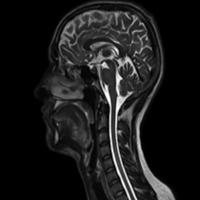Implementing Deep-learning-based iterative algorithm to solve inverse problem of MRI
Spring 2019
Master Semester Project
Project: 00369

MRI or CT imaging requires to solve inverse problem of reconstructing the image of internal organs from the acquired measurements. Recently, neural networks have been used to reconstruct these images. These networks are trained to directly output the image when the measurements (or a primitive image obtained from measurements) are given as an input.
However, these CNN-based approaches usually lack a feedback mechanism to enforce that the reconstructed image is consistent with the measurements. In [1], we use an iterative framework for CT imaging, wherein measurement consistency is enforced, while a neural network recursively improves these images.
This approach outperforms the previous approaches and is more robust.
The goal of the project would be to extend this algorithm for MRI modality. The task will be to implement this algorithm in Matlab (using GlobalBioIm Library), with learning framework in Pytorch.
The framework for the CT case is already available in MatconvNet (in Matlab) [2].
Pre-requisites: Either already having knowledge of Deep learning, Pytorch, and Image Processing or going to take courses on these subjects in parallel to the project.
[1] H. Gupta, et al. `CNN-Based Projected Gradient Descent for Consistent CT Image Reconstruction'. IEEE transactions on medical imaging, 2018.
[2] https://github.com/harshit-gupta-epfl/CNN-RPGD .
[3] http://bigwww.epfl.ch/globalbioim/ .
- Supervisors
- Harshit Gupta, harshit.gupta@epfl.ch, BM 4.140
- Michael Unser, michael.unser@epfl.ch, 021 693 51 75, BM 4.136
- Than-an Pham